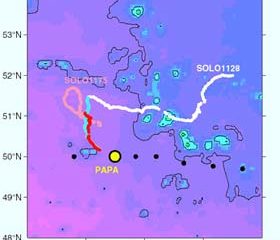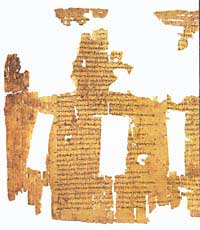Earth Sciences (also referred to as Geosciences), which deals with basic issues surrounding our planet, plays a vital role in the area of energy and raw materials supply.
Earth Sciences comprises subjects such as geology, geography, geological informatics, paleontology, mineralogy, petrography, crystallography, geophysics, geodesy, glaciology, cartography, photogrammetry, meteorology and seismology, early-warning systems, earthquake research and polar research.

Geological sciences researchers at Virginia Tech are using GPS antennas to measure aquifer use and storage capacity. At the Geological Society of America’s 114th annual meeting in Denver, Oct. 27-30, master’s degree student Sandra Warner will make the case for the broader coverage of such tools.
Warner and Virginia Tech geological sciences professor Thomas Burbey are conducting a large-scale aquifer test on a new municipal well in the Virgin River Valley near Mesquite, Nev. In add

Atmospheric particles that become acidic through exposure to such pollutants as sulfuric acid can lead to vast increases in the formation of secondary organic aerosols, a new study indicates. Such aerosols are major components of the unsightly haze that hangs over cities and oil refineries and even affects otherwise pristine U.S. national parks.
A report on the research appears in Friday’s (Oct. 25) issue of the journal Science. Authors, all at the University of North Carolina at Chapel

Robotic Carbon Explorers test the “iron hypothesis” in nature
In the spring of 2001, two robotic Carbon Explorer floats recorded the rapid growth of phytoplankton in the upper layers of the North Pacific Ocean after a passing storm had deposited iron-rich dust from the Gobi Desert. The carbon measurements, reported in the October 25 issue of Science, are the first direct observation of wind-blown terrestrial dust fertilizing the growth of aquatic plant life.
A group of scie

Sometimes getting too much of a good thing may create more problems than not getting enough – especially when it comes to the weather. Just ask Texas A&M University atmospheric scientist Fuqing Zhang, whose ensemble weather forecasting research is burdened with trillions of bytes of real-time data.
Zhang’s quest, funded by a National Science Foundation grant of $295,500, is to find the best way to assimilate the most recent weather observation data for input into the latest computer fo

But scientists say human effects can be a positive, not negative, factor for life on earth
Human beings now directly influence more than three quarters of the earth’s landmass, according to a state-of-the-art map of the world produced by a team of scientists from the New York-based Wildlife Conservation Society (WCS) and Columbia University’s Center for International Earth Science Information Network (CIESIN). Published in the latest issue of the scientific journal BioScienc

During the second century B.C., a mummy-maker took a scroll of poetry and used it as stuffing for a corpse. The roll of papyrus remained hidden inside the mummy’s chest cavity until its rediscovery in the early 1990s. Today, what was once treated like trash survives as the oldest surviving example of a Greek poetry book, as well as an important source of information about the past.
To glean as many clues from this ancient scroll as possible, the University of Cincinnati Department of Class